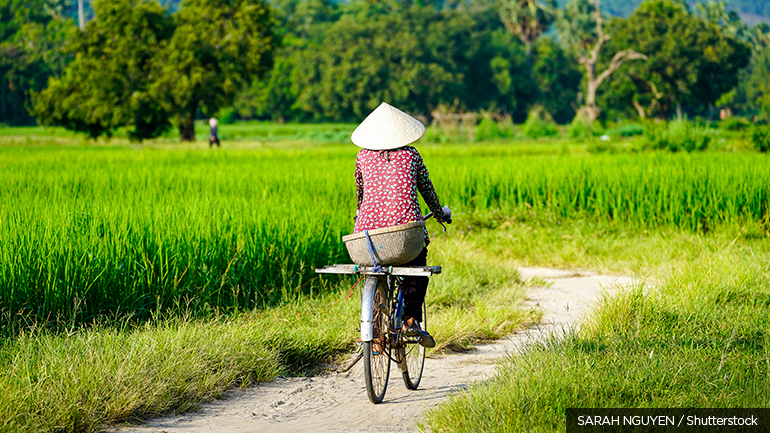
Program Summary
This activity supports the design of the Mekong Delta Green and Low carbon Agriculture Transformation Pathways.
Challenge
Vietnam is an agricultural powerhouse. Annually, it earns nearly US$9 billion in positive trade balance from agricultural exports. Best known for being a global rice basket, it is the fifth largest producer of rice and the second largest exporter. The Mekong Delta produces around 25 million tons of paddy rice every year in an area of just over 3 million hectares contributing half of the country’s total rice production and over 90% of Vietnam’s rice exports. Vietnam is a major contributor to climate change, but it is also a victim of climate change due to the impact of floods, droughts, saltwater intrusion due to rising sea levels. Climate change is threatening the Delta’s productive capacity, exacerbated by unsustainable rice production practices (i.e., inefficient water management, overuse of inorganic inputs) and inefficient land use (i.e., conversion of wetlands, encroachments, and continued paddy intensification in areas not suitable for paddy production). Rice accounts for 50% of agriculture emissions and 15% of total emissions (IRRI, 2019). Largely from tractors, harvesters, thrashers, and inefficient milling, Vietnam’s rice emissions amount to 44Mt CO2e/year; this is more than the transport sector emissions (30Mt CO2e/yr.).
Approach
Mapping, re-assessing, and prioritizing available technical solutions to provide information and knowledge for designing the Mekong Delta Green and Low carbon Agriculture Transformation pathways. Additionally, the activity will inform the next Country Partnership Framework (CPF). It is also expected that knowledge generated will help the Ministry of Agriculture and Rural Development design investment projects which could be considered by the Bank for IBRD financing.
[Expected] Results
An analytical study will be produced to identify the most cost-effective ways to achieve emission reductions from rice fields and industry in the Mekong Delta of Vietnam. Specifically:
- Modelling and simulations to estimate potential emission reductions from various technical options.
- Estimation of emission abatement costs associated with various options and factors affecting their adoption at scale.